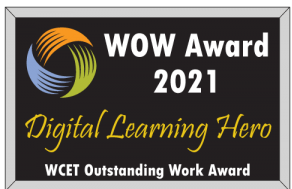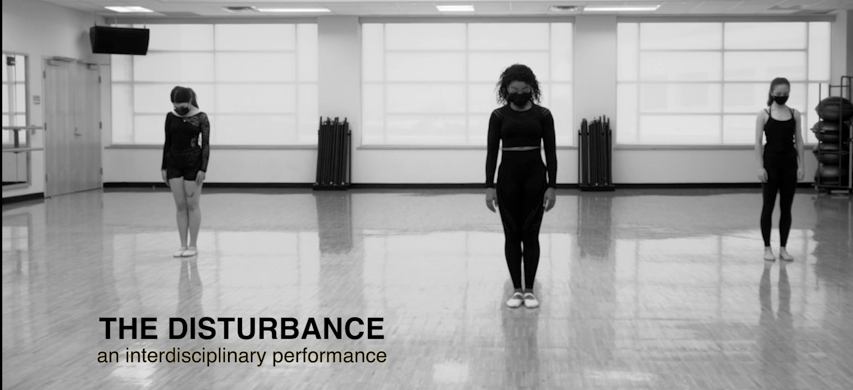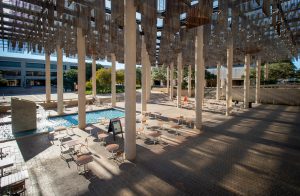A Network Rooted in Quality & Innovation
Published by: WCET | 9/23/2021
Tags: COVID-19, Online Learning, Student Success, WCET Awards, WOW Award
Published by: WCET | 9/23/2021
Tags: COVID-19, Online Learning, Student Success, WCET Awards, WOW Award
Welcome to our continued celebration of 2021 WOW awardees! We’re joined today by Melissa Vito and Claudia Arcolin, both from The University of Texas at San Antonio who shared the following post about UTSA’s response to the COVID-19 pandemic. Their “non-negotiable objective” was to “continue to innovate and deliver a high-quality education despite the unprecedented circumstances.” Read on to learn how the UTSA teams met that objective.

Frontiers is currently hosting our annual blog post series featuring posts from our 2021 WCET Outstanding Work (WOW) Award Winners.
This year we took a slightly different focus and asked for stories that described the intensely hard work that WCET member institutional staff, instructors, administrators, and students heroically stepped up with to the meet the challenges brought on by the COVID-19 pandemic.
Congratulations to the 2021 WOW awardees:
Congrats and thank you to the University of Texas at San Antonio and the digital learning heroes highlighted in today’s post. Stay tuned for the rest of this blog series as we lead up to this year’s WCET Annual Meeting!
Enjoy the read and enjoy your day,
Lindsey Downs, WCET

Students were away at Spring Break 2020 when UTSA President Taylor Eighmy and the university’s senior leadership team decided that we would cease all in-person classes for three weeks – and then, ultimately, for the remainder of the spring semester. The Coronavirus pandemic was beginning to ripple worldwide, forcing organizations to find alternative ways to conduct business while federal, state, and local governments were mandating quarantine measures or strongly encouraging people to stay at home.
Like many other institutions, we had monitored the initial outbreak and were taking stock of our options and existing resources. We decided on one non-negotiable objective – that we would continue to innovate and deliver a high-quality education despite the unprecedented circumstances. We wanted to create a bold online learning experience that went beyond being familiar with new tools and instead emphasized digital fluency.
Luckily, we didn’t have to build everything from scratch. UTSA had made key investments in digital resources and tools, notably becoming the only public university in Texas certified as an Adobe Creative Campus. In late 2019, UTSA was only 1 of 38 schools worldwide with that distinction.
UTSA notified students that it was immediately extending Spring Break by a week. It bought our team in UTSA’s Office of Academic Innovation a critical five additional days to prepare every faculty member to provide online instruction, even though most had never taught in a digital learning environment.
It was clear that we had to quickly disseminate a suite of materials, but simply distributing tutorials and tools wouldn’t be enough. If we were going to overcome faculty hesitation, we needed to create a group of digital learning ambassadors to encourage confidence and comfort with online instruction.
Our 50 Faculty Champions and Points of Contact became trusted sources of information amidst the fear and disruption of the pandemic. As peer mentors, they were embedded in colleges to help us distribute information to their colleagues. They were vital figures in helping their peers learn how to broadcast lectures – but, more importantly, they took part in reimagining how we help our students learn. Faculty Champions and Points of Contact were selected by their college’s dean, so organizational buy-in was baked-in from the beginning.
“Faculty were able to obtain assistance both within their departments and from a larger support structure, so they felt confident seeking help from colleagues who were familiar with their course content.”
Arturo Montoya, Faculty Champion,
Associate Dean of Undergraduate Programs, Associate Professor, Department of Civil and Environmental Engineering
Together, we held listening sessions and met individually with groups of students and faculty. In addition, we engaged the student and faculty representative organizations and conducted system-wide surveys.
From the feedback, our team in Academic Innovation created extensive resources and guidance to help faculty succeed online. We designed and conducted intensive Blackboard Learn bootcamps at the start of the transition online, and within one week, offered 40 live sessions to all departments. We provided each college with an instructional designer to implement new online teaching and learning practices. We also shared services that may seem small but significantly impact the student experience – like when we counseled faculty on how to stage their home workspaces to be optimized for online broadcasts.

Faculty Champions helped their colleagues gain confidence in their online teaching capabilities by offering one-on-one peer mentoring and identifying actions to support student success. Ultimately, our team and the Faculty Champions trained more than 1,000 instructors in less than a week to move 2,298 courses online.
Once students returned online after Spring Break, we continued to listen to their feedback and helped faculty tweak or improve their courses. We also obtained new tools and licenses that helped us continue to enrich the student experience and improve accessibility. Initiatives like Gamify Physics, for example, helped transport our students across the world and show the diversity and expertise of physics professors that more closely resembled our majority non-white campus.
Even with all these tools and strategies, we still needed to combat the isolation and loneliness of COVID-19 and social distancing. So UTSA, with the help of Faculty Champion Jodi Peterson and many others, developed an interdisciplinary project to help spur interactions between students. We provided students with an opportunity to capture this moment in their lives. It was not just an exercise in experiential learning — the project connected them to each other, encouraged deep thinking in a virtual environment, and provided future historians with the feelings, fears, and hopes of our students through tangible artifacts that would last beyond this moment in time.
Defining Moments showcases the creative and collaborative prowess of the Roadrunner community. More than 500 students across six disciplines were invited to participate in the project. They worked with faculty in history, English, art, music, dance, and architecture to turn their reflections into creative and expressive works. Students utilized collaborative tools, like Adobe, and leveraged the expertise of instructors who had been shown how to excel in digital learning environments. Academic Innovation’s team captured interviews, shot videos, and placed students’ creative output together in an artifact repository.
Faculty Champions and Points of Contact were critical to successfully flipping operations online and reimagining how we deliver an inclusive, equitable, and engaging education in a digital setting. Many of the strategies we implemented during the beginning of the pandemic are now standard practice at UTSA. Faculty Champions and Points of Contact continue to inform UTSA’s work to build better student resources. They ensured that UTSA continued to deliver high-quality education to our students regardless of the volatile world or how students come to the classroom.
Vice Provost, UTSA Academic Innovation